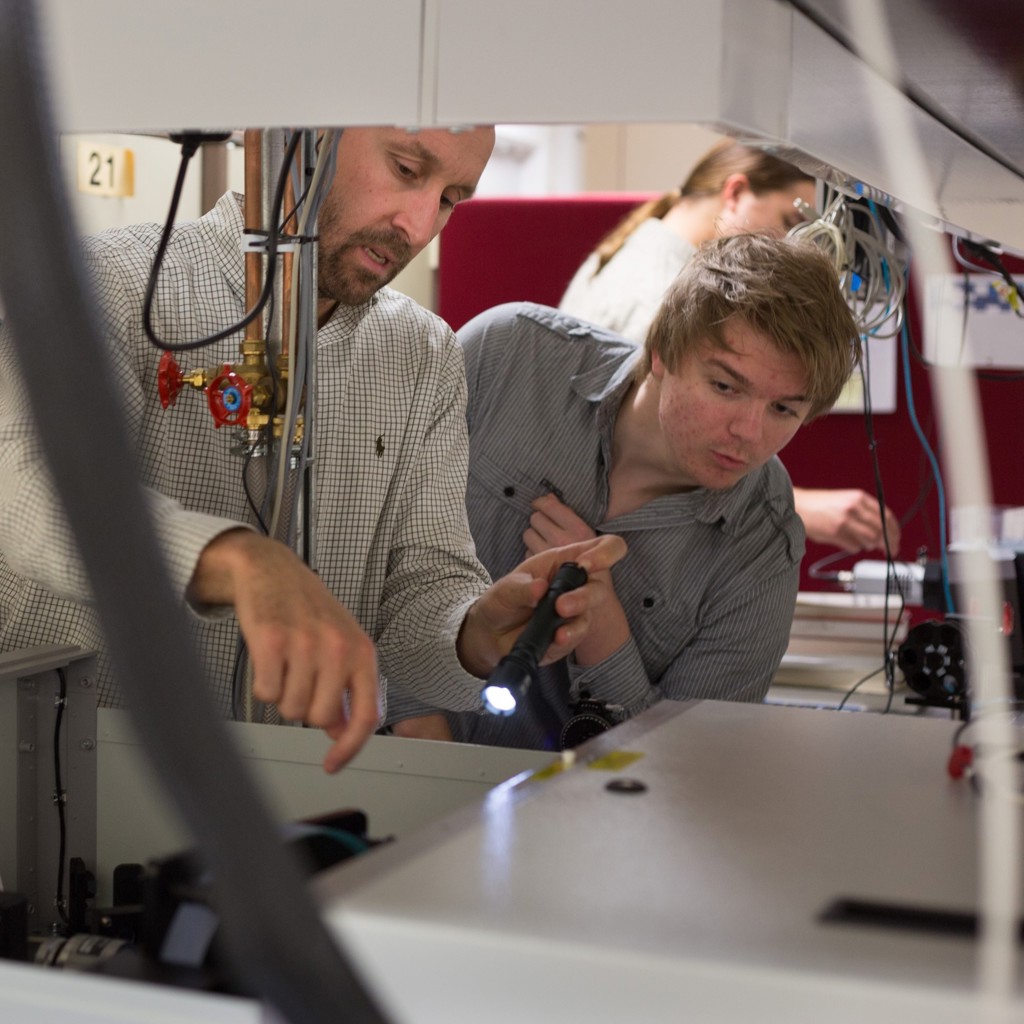Daniele Faccio
University of Glasgow, United KingdomFor pioneering experiments and the study of analogue Hawking radiation from optical systems where an intense filament of light creates an effective curved spacetime that mimics the curvature at the horizon of a black hole.

Daniele Faccio distinctly remembers his condensed matter course during his undergraduate studies at Università degli Studi di Milano - not because this was his favorite subject - but because the lecturer brilliantly wove together concepts from all parts of the textbook. He says he wanted to be just like her one day by making connections and bringing everything to life in the same skillful way she did.
He did not have a linear path into academia. Growing up, science was a hobby for Daniele. It was not until he took biology class in high school that he realized he liked science. After choosing to study physics and then completing a Master’s project in nonlinear optics, he held various positions in optical telecommunications research (both in academia and industry) before deciding that academia was where he belonged. He wanted an opportunity to “lay out his own plans” and that led him to his current position at the University of Glasgow in Scotland.
Throughout these experiences he learned the importance of having a mentor. “Make sure that you always, at all stages of your career, have someone to look up to and learn from,” Daniele says. “A mentor need not necessarily be someone that gives explicit advice or help. Sometimes we need more than one mentor. I learned different things from different people,” he adds.
Daniele notes that collaborations can be one of the best tools—not only for mentorship, but also for learning. “Books and papers are great,” says Daniele. “People are much better.” Daniele credits OSA meetings with starting career-defining collaborations and friendships for him.
Over the course of his career, Daniele has had to overcome knowledge barriers involved in changing fields. He says that many researchers remain on the same topic for their entire careers while others try a range of things. In order to dig deeper and bring something new to a field, when changing research areas, he says one must find an expert in the field that they can learn from. Otherwise, the science that is done may remain superficial. “Choose something that you are passionate about and don’t let go” he advises young researchers.
Daniele’s research currently focuses, among other things, mainly on quantum and computational imaging which “is advancing at a very fast rate” with “some rather amazing things going on.” Daniele guesses that the next big thing in his field is going to be an optical camera that can replace fMRI. While it is not clear whether this is possible, Daniele says that that “there is nothing in physics that says it is not.” He adds that it will be interesting to see the future of Artificial Intelligence and its applications.
When he’s not working, Daniele enjoys “anything and everything that is mountain-related” such as sky-running, mountain biking, climbing, and skiing. He says that, in Scotland, these are all just synonyms for getting very wet.
Profile written by Jeanette Gass
